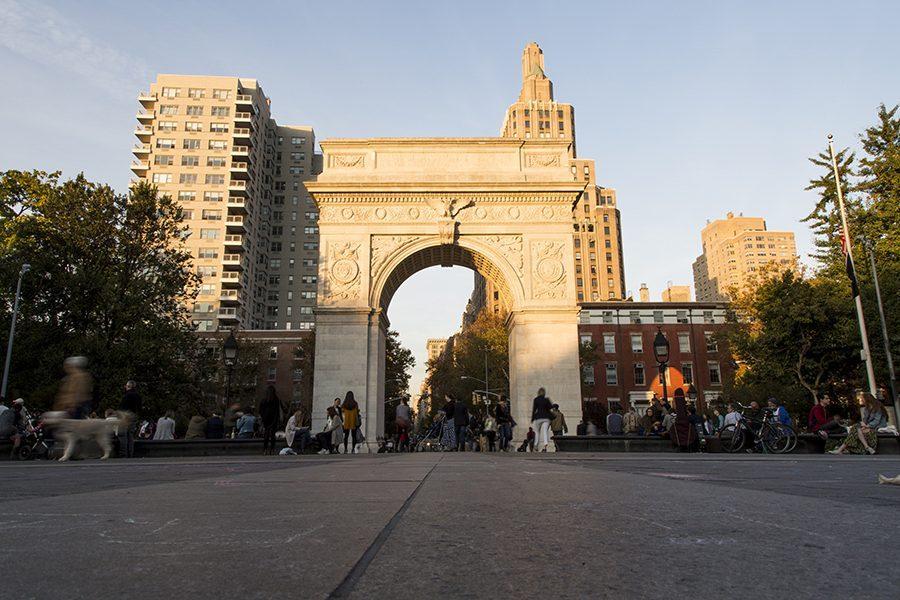Argentinian Femicides Hit Close to Home
October 31, 2016
As part of a global initiative in response to the recent femicide of Argentinian 16-year-old Lucia Perez, a protest involving several NYU students took place in Washington Square Park on Wednesday, Oct. 19. #NiUnaMenos is a protest movement that has gained traction the past few months due to large demonstrations that have gathered throughout Latin America.
Femicide is not new, and the protests against it certainly aren’t either. Maria Josefina Saldana-Portilla, an Associate Professor of Social and Cultural Analysis specializing in Latino/a Cultural Studies at NYU, traces these vast protests back to 1990s Mexico.
“The most famous of femicides is on the U.S.–Mexico border in the area of Ciudad Juarez, and there was a huge feminist response,” Saldana said. “They protested the femicides quite broadly and successfully.”
However, these protests clearly haven’t stopped the swell of femicides all across the Americas. The protesters in Washington Square Park recognized this fact as well, and Saldana finds that important.
“I think it’s important that it’s international in that it includes victims in the United States, because it’s too easy to fall into a narrative of like, those women were killed because of machismo and their cultures, because they’re backwards, because they’re savage,” Saldana explained. “Femicide is a problem across the Americas, so there needs to be a transnational response.”
With many of the recent wave of femicides coming from Latin America, it has become important for Latinos in the U.S. to speak up. GLS senior Maria Rendo participated in the Washington Square protest because she couldn’t be in her home of Buenos Aires.
“Being away from home when something like this happens is hard,” Rendo said. “You really want to join the march, but you can’t, so you are left with this sense of impotence.”
Rendo found the Washington Square protest to be better than nothing, even though it was small. Protests such as this first and foremost bring attention to the issue, which is the first step in trying to solve the problem.
“Awareness is important when it comes to preventing violence,” she said. “Legislation to help the victims and punish the perpetrators is important, but violence comes from society and needs to be stopped by society.”
Heightened awareness is just what LUCHA, a club on campus dedicated to Latino issues, is trying to achieve. Rendo, who is a member of LUCHA, said that they are trying to act in response to the #NiUnaMenos movement by dedicating a part of their Dia de Los Muertos altar to the femicides.
CAS senior Molly Rockhold, who also participated in the protest, agreed with Rendo.
“It generates awareness that this is going on, that’s the most important thing,” Rockhold said. “People start thinking about it and hopefully, considering everything that they do, that contributes to the issue of violence and discrimination against women.”
A version of this article appeared in the Monday, Oct. 31 print edition. Email Kaitlyn Wang at [email protected].
























































































































































